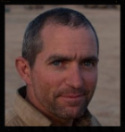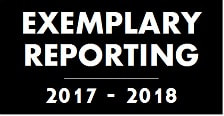Journalists- Media Spotlights
In order to assist the expert community in reaching media audiences, the Forum on the Arms Trade maintains a list of journalists who have historically or are now regularly reporting on Forum topics.
Unlike our experts list, journalists identified here have not explicitly consented to be listed. Some journalists have, however, responded to queries about their work and have been profiled more fully (see media "spotlights"). Not exhaustive, this list is meant to capture leading journalists and is frequently updated. If you have suggestions for additional media members or topics to add to this list, or are listed and would like to be removed, please email us.
 Bryan Bender (profiled July 2015)
Bryan Bender (profiled July 2015)
Bryan Bender is the defense editor for Politico Pro and previously reported for the Boston Globe and Jane’s Defence Weekly. His work includes coverage of U.S. military operations, government secrecy, terrorism, and the international arms trade. He is author of You Are Not Forgotten and a board member of the Military Reporters and Editors Association.
When asked about the importance of reporting on the international arms trade, Bender said, "If we are going to cover the many fires - the numerous conflicts that are blazing in so many parts of the world - I think we have a responsibility to pay attention to what helps fuel them and why, including the proliferation of deadly weapons. The fact that they just as often get turned on civilians as combatants is not merely a humanitarian concern. In the process the weaponry that is primarily secured from outside sources feeds the vicious internal cycle of revenge and recriminations and prolongs the fighting. The international arms trade, whether legal or undertaken out of the bounds of legal structures, is all too often an afterthought when policy makers seek ways to stabilize world conflicts."
When asked about the importance of reporting on the international arms trade, Bender said, "If we are going to cover the many fires - the numerous conflicts that are blazing in so many parts of the world - I think we have a responsibility to pay attention to what helps fuel them and why, including the proliferation of deadly weapons. The fact that they just as often get turned on civilians as combatants is not merely a humanitarian concern. In the process the weaponry that is primarily secured from outside sources feeds the vicious internal cycle of revenge and recriminations and prolongs the fighting. The international arms trade, whether legal or undertaken out of the bounds of legal structures, is all too often an afterthought when policy makers seek ways to stabilize world conflicts."
 C.J. Chivers (profiled June 2015)
C.J. Chivers (profiled June 2015)
C.J. Chivers reports for the New York Times, where he works on the Investigations Desk and for the New York Times Magazine. For many years, he has traveled to and carefully identified weapons found in conflict zones, writing insightfully about the arms trade and its effects. Recently, he looked at where the Islamic State acquired its weapons, building in part on research previewed at the Forum-Stimson co-sponsored April 7 (2015) event.
A former U.S. Marine and author of The Gun, Chivers will talk about MANPADS in the Middle East at an event in Washington DC June 10. When asked about the importance of the investigative work he does, Chivers said, "I became interested years ago in trying to identity and trace the important physical tools of organized violence. This seemed essential to gaining a richer understanding of how people are harmed, societies disrupted and property destroyed -- and perhaps even in establishing accountability for the terrible damage that is inevitable in armed conflict. It was an area of war coverage that was underserved, so seemed worthy of more labor."
A former U.S. Marine and author of The Gun, Chivers will talk about MANPADS in the Middle East at an event in Washington DC June 10. When asked about the importance of the investigative work he does, Chivers said, "I became interested years ago in trying to identity and trace the important physical tools of organized violence. This seemed essential to gaining a richer understanding of how people are harmed, societies disrupted and property destroyed -- and perhaps even in establishing accountability for the terrible damage that is inevitable in armed conflict. It was an area of war coverage that was underserved, so seemed worthy of more labor."
 Thomas Gibbons-Neff (profiled December 2015)
Thomas Gibbons-Neff (profiled December 2015)
Thomas Gibbons-Neff is a recent Georgetown University grad and a former enlisted Marine. Originally from Boston, Thomas now writes for the Washington Post. His work has appeared in a number of publications including The Atlantic and The New York Times. His recent reporting has examined how weapons are impacting conflicts in Ukraine and Syria, as well as in terrorist events in the United States and worldwide, often providing very human insights into global issues. (And sometimes just wonky, like this Star Wars post.)
When asked about his reporting, Gibbons-Neff said, "I think reporting on the arms trade and weapons proliferation is an important part of how we see the world. Wars are violent and terrible and the millions of small arms used in them are often overlooked and taken for granted. Accurate reporting on their proliferation is important because it serves as a reminder that small arms are the real weapons of mass destruction."
When asked about his reporting, Gibbons-Neff said, "I think reporting on the arms trade and weapons proliferation is an important part of how we see the world. Wars are violent and terrible and the millions of small arms used in them are often overlooked and taken for granted. Accurate reporting on their proliferation is important because it serves as a reminder that small arms are the real weapons of mass destruction."
 Aaron Mehta (profiled April 2016)
Aaron Mehta (profiled April 2016)
Aaron Mehta is the senior Pentagon correspondent for Defense News, covering policy, strategy and acquisition at the Department of Defense. He previously worked at the Center for Public Integrity where he covered the intersection of money and politics. Some of his recent reporting has looked at arms sales to the Middle East and pressure to speed up export approvals.
When asked about the importance of reporting on the arms trade and weapons issues, Mehta said “the arms trade is one of the largest markets in the world, period, and gives insight into how a nation may act in the future. Keeping track of who is trying to procure what is vital to understanding the world around us.”
When asked about the importance of reporting on the arms trade and weapons issues, Mehta said “the arms trade is one of the largest markets in the world, period, and gives insight into how a nation may act in the future. Keeping track of who is trying to procure what is vital to understanding the world around us.”
 Bryan Schatz (profiled July 2016)
Bryan Schatz (profiled July 2016)
Bryan Schatz is a reporter at Mother Jones magazine, covering guns, the arms trade, and foreign affairs. Recently he has looked at corruption in the arms trade, as well as Saudi Arabia and U.S. cluster munitions sales. His work previously appeared in outlets including Men’s Journal, Outside, Pacific Standard, and others.
When asked why he thinks it important to report on corruption and profit in the arms trade, as well as challenges to regulating the trade, Schatz said, "The global arms trade has real-life consequences. The weapons get sent to militaries and rebel groups; the bombs get dropped. Sometimes the material is intended for legitimate defense purposes, but often it gets diverted or is used inappropriately. When an industry’s bottom line depends on selling more weapons, and because so much of it operates in the shadows, I think it deserves all the scrutiny it can get."
When asked why he thinks it important to report on corruption and profit in the arms trade, as well as challenges to regulating the trade, Schatz said, "The global arms trade has real-life consequences. The weapons get sent to militaries and rebel groups; the bombs get dropped. Sometimes the material is intended for legitimate defense purposes, but often it gets diverted or is used inappropriately. When an industry’s bottom line depends on selling more weapons, and because so much of it operates in the shadows, I think it deserves all the scrutiny it can get."
* The "Media Spotlight" highlights journalists who are thoughtfully reporting on topics addressed by the Forum on the Arms Trade. Selection does not indicate agreement with or endorsement of the journalist's views, the Forum, or Forum-listed experts.




